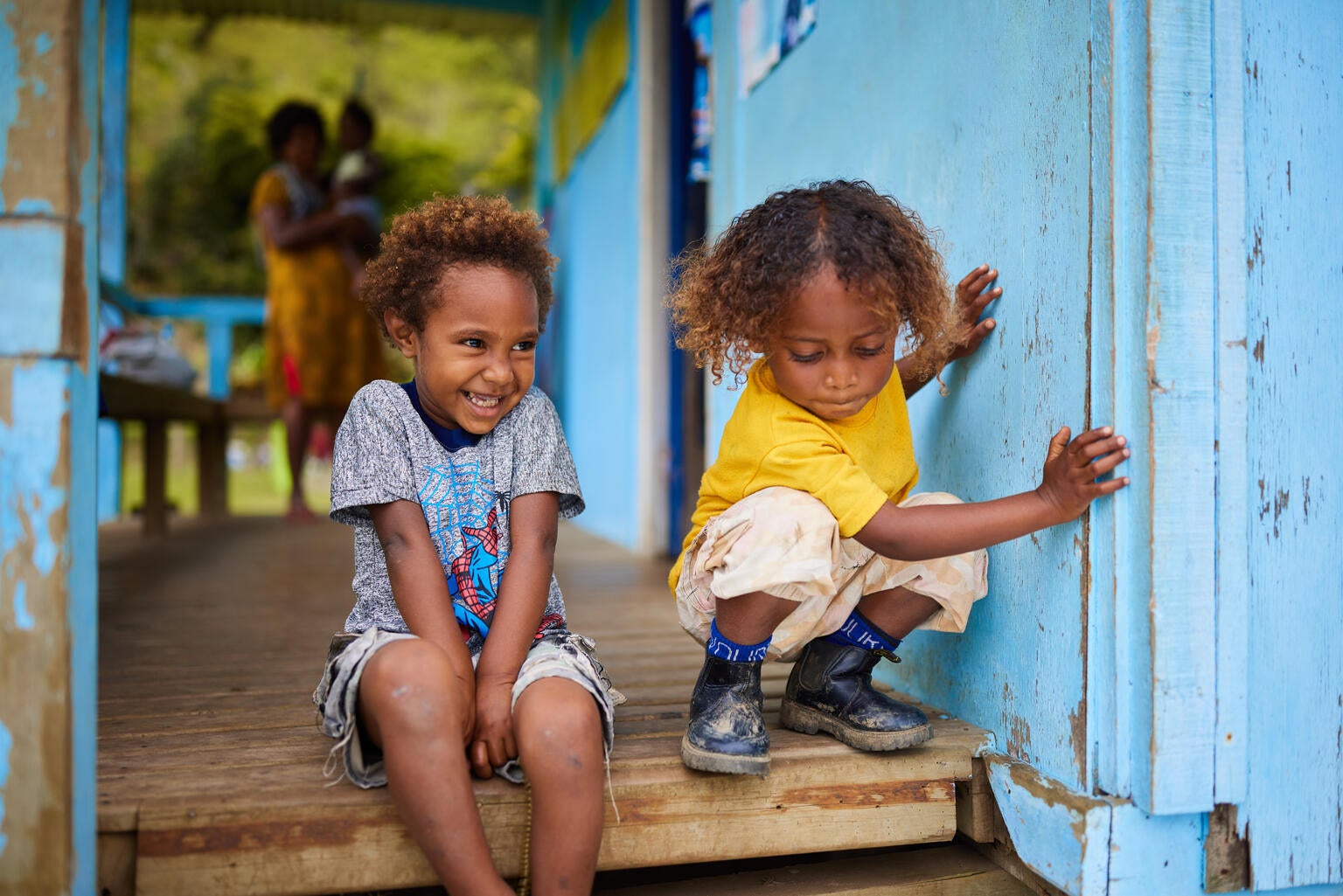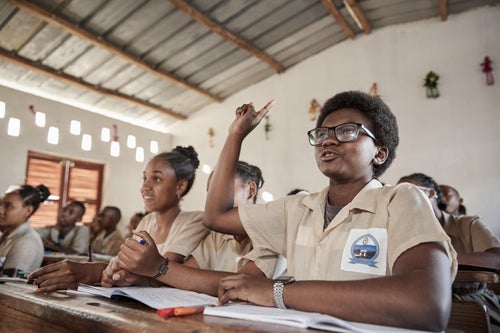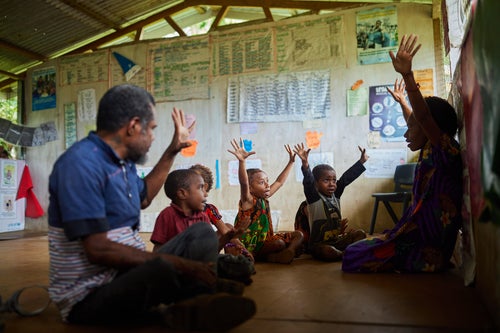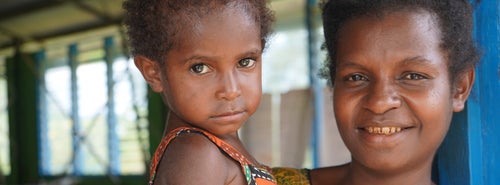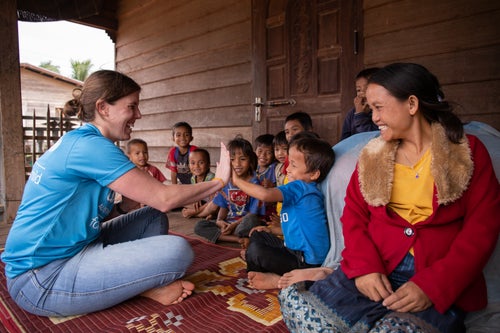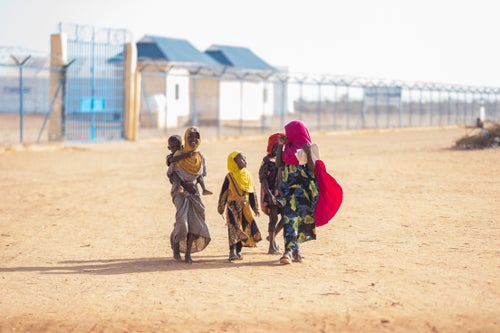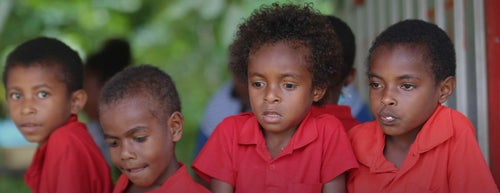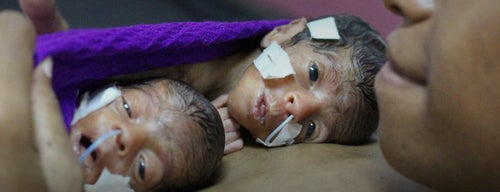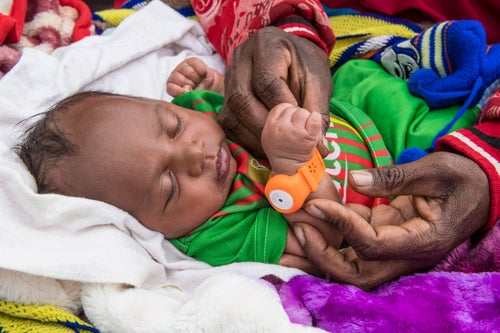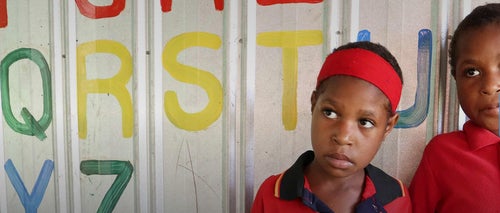Children at risk as poliovirus confirmed in Papua New Guinea
After 25 years of being polio-free, Papua New Guinea (PNG) has confirmed that the poliovirus has been detected in two children in Lae, the country’s second largest city.
Polio is a virus that mostly affects children under five, and there is no cure, only prevention through vaccination. Yet, low routine immunisation coverage has left many children in PNG vulnerable.
Polio can cause lifelong paralysis, especially in young children, and the virus can move quietly from person to person, even before they show signs of sickness. While no children have yet shown symptoms of paralysis, the confirmation of detections in healthy children is clear evidence of community transmission, which has triggered a national emergency response to protect every child across the country.
UNICEF is working alongside the Government of PNG and local partners to stop the virus in its tracks and ensure all children are protected. But we need your help to do more. Please donate today to ensure every child is vaccinated against preventable diseases.
We’re in Papua New Guinea, giving every child a fair chance to thrive throughout childhood.
Did you know that Papua New Guinea (PNG) is one of the world’s most ethnically diverse countries, with more than 850 indigenous languages? Rich in culture and tradition, the people of PNG associate in tribal and language groups, and 80 per cent of the nation’s population live in rural areas.
Despite its wonderful diversity, PNG faces many challenges. Located in one of the most hazard-prone regions in the world, PNG is extremely vulnerable to climate change and more than half of all children under five are malnourished. Children and their families have difficulty accessing basic public and social services, and there are elevated levels of violence between tribal communities and within families. Additionally, the total number of years of schooling a child of school-entry age can expect to receive is less than five years.
We’re in PNG, working with our partners on long-term development programs to address the many complex challenges faced by children and their families. We’re focusing on investing in the early years, keeping mums and their babies healthy, protecting children from harm and unleashing the potential of PNG’s young people so that children can thrive.
Located in Oceania, Papua New Guinea is Australia's closest neighbour.

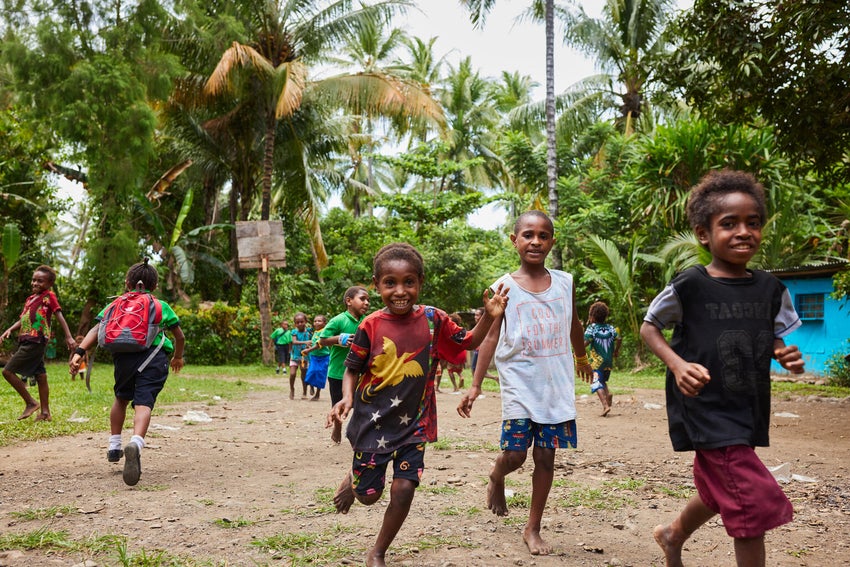
Papua New Guinea’s many challenges
The children of PNG face many challenges. In education, they have limited early learning opportunities, and a quarter of children aged 6 to 18 are still out of school, of those who are enrolled in primary and secondary school, many do not perform at their grade level. The health system is fragile with children dying of preventable diseases, while malnutrition and lack of access to safe water are significant underlying factors for illness and deaths in children under five. Plus, violence is a daily reality for most children, making them feel unsafe in their homes and communities.
51%
of children in Papua New Guinea are stunted, which is when a child does not receive enough food and nutrients.
1 in 50
babies in Papua New Guinea die within the first month of life.
How we’re protecting the rights of children in Papua New Guinea
Over the years, we have successfully piloted new approaches to accelerate positive change for children and their families. Our work in PNG is only possible thanks to the generous support of the Australian public and the Australian Government through the Australian NGO Cooperation Program (ANCP).
13,522
people benefited from improved quality of, and access to, maternal, newborn and child health services between 2021 and 2023.
28,442
children benefited from interventions aimed at reducing stunting and other forms of malnutrition between 2021 and 2023.
11,000
parents participated in positive parenting sessions between 2021 and 2023.
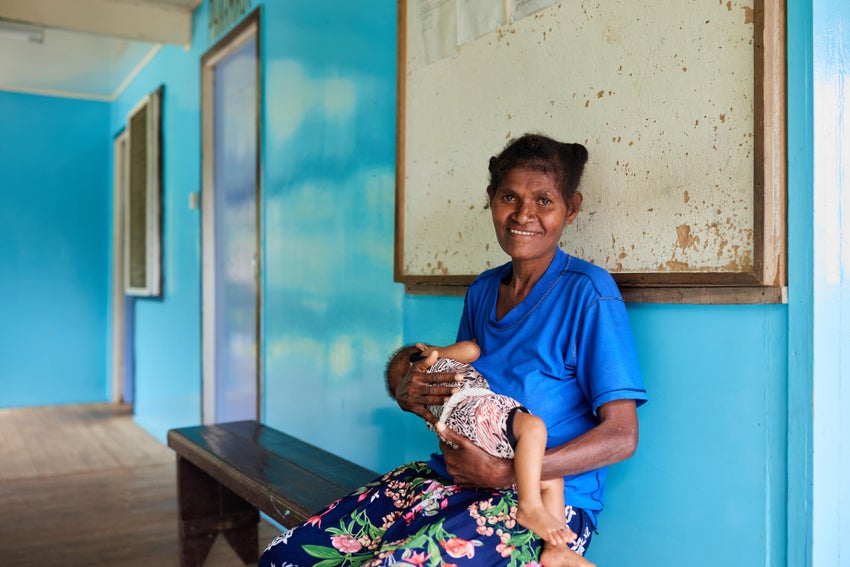
Treating malnutrition in remote villages
It takes 41-year-old Noris a whole day to walk to the nearest health clinic with her six-month-old baby, Jeremaiah—a journey she rarely makes because of the distance and weather.
"I gave birth in my home with women in the village helping me. The delivery wasn't long or complicated, so I didn't go and get healthcare after the birth; my son came here for the first time today," Noris explains.
Although Noris's village has a health clinic, there is no Village Health Assistant or Health Care Worker to help look after them, leaving the mothers without the information they need for their maternal and newborn healthcare.
"I used to stay in my village because my village is far, but I heard UNICEF is coming, so I decided to walk to get some information. I didn't know my child has severe acute malnutrition (SAM), I just found out. I am happy that my child is getting help, and I will walk that distance more times to help my child."
UNICEF Australia is working alongside our partners in Papua New Guinea to deliver a Convergence program which works across a range of early childhood and adolescent development sectors to provide holistic support for children and adolescents in Morobe Province and Madang Province.
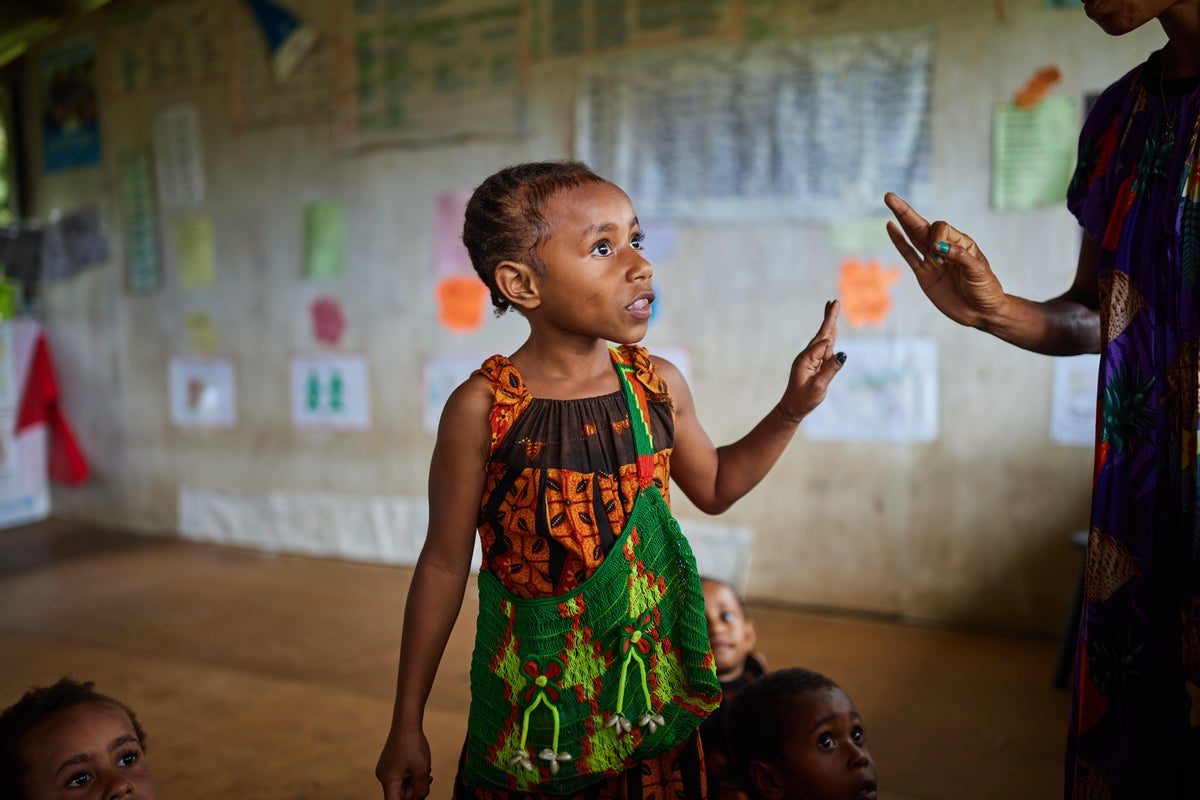
Early learning centre in Papua New Guinea
In Papua New Guinea, we're making a difference in:
Help the children of Papua New Guinea
By donating today, you can help us break the cycle of inequality and give each child a fair chance to thrive.
The impact of our work
Every child has the right to be healthy, educated, and live safe from harm.



